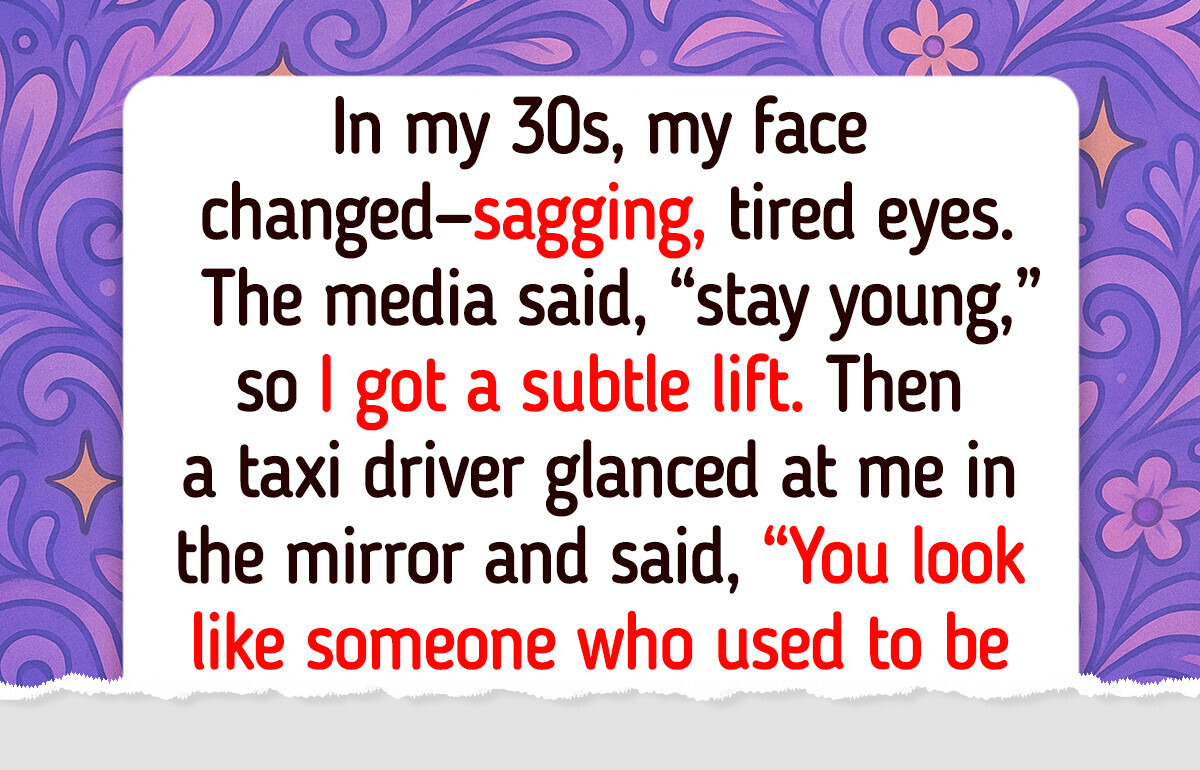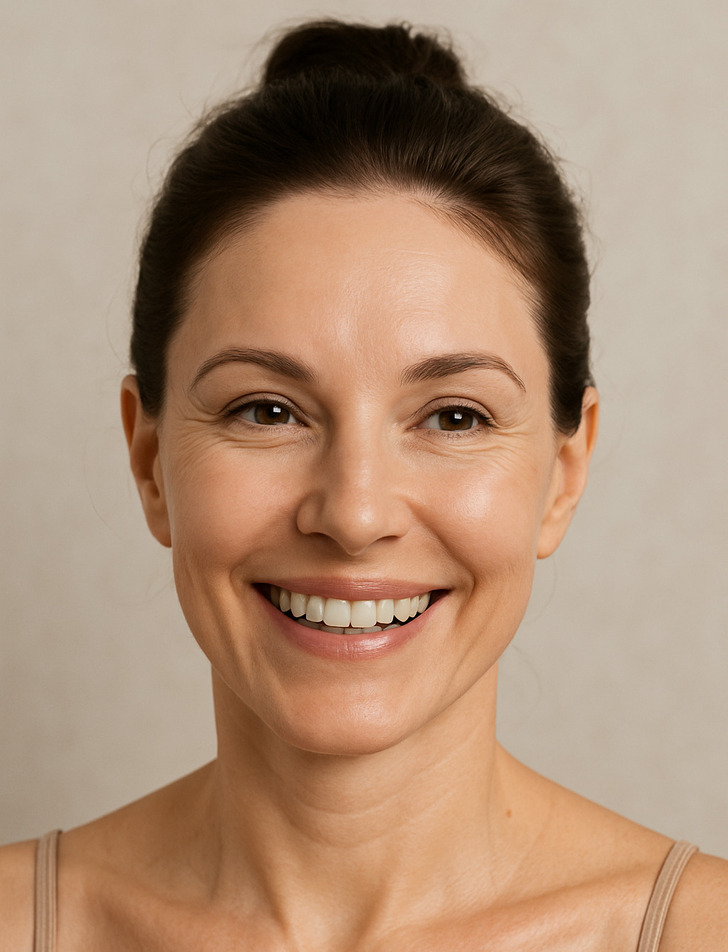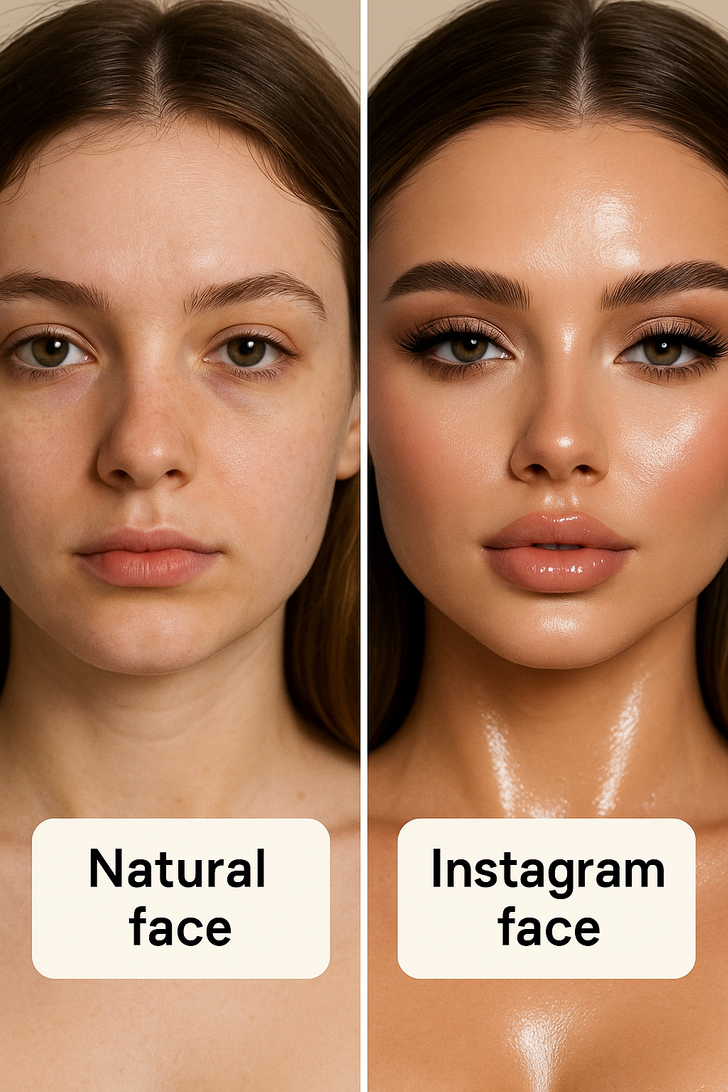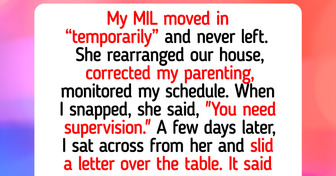I Refused to Be the Office’s “Go-To” Holiday Backup Just Because I’m Single


We talk a lot about self-love, but what happens when that love doesn’t look the way others expect? When doing something for yourself—to feel more like yourself—sparks judgment instead of support?
This is a story about choice, confidence, and the complicated emotions that surface when you step outside the “acceptable” lines of aging. It’s not about vanity or shame. It’s about a woman who looked in the mirror, listened to herself over the noise, and made a decision that felt right—only to be told she shouldn’t have.

It started small. A bit of sagging here, tired eyes there. I’m in my late 30s, and one day I looked in the mirror and didn’t recognize myself—not because I hated how I looked, but because I missed how I used to look.
Everyone around me preached “aging gracefully” and “embracing the lines.” But none of them had to hear the constant “You look tired,” or scroll past endless flawless selfies on social media feeling invisible. The media said, “Stay young.”
So I booked a consultation. I just wanted my face to match how I still felt inside: vibrant.
After the surgery, I felt amazing. Lighter. More like me. But my friends? Not so much.
One said, “You were beautiful the way you were.” Another hit me with, “Guess you’ve given up on self-love.” Some just made passive-aggressive comments about “vanity” and “being fake.”
But the reaction that stunned me the most came from a complete stranger—a taxi driver, of all people. He kept glancing at me in the rearview mirror, and finally said, “You look like someone who used to be pretty before all that work.”
I didn’t know whether to laugh, cry, or jump out of the car. It wasn’t just rude—it was a reminder that people feel entitled to comment on women’s appearances, even when they’re total strangers.
The irony? These same people drop hundreds on skincare, fillers, and Botox—but apparently, what I did crossed the line.
Here’s the truth: I didn’t choose plastic surgery because I hated myself. I chose it because I like myself enough to want to feel good in my own skin.
And I’m done apologizing for it.
Thank you for reaching out to us!

It’s easy to think people get plastic surgery just to “look better.” But the truth is a lot deeper than that. Behind every procedure, there’s a story—and often, it’s not just about looks.
We Want to Feel in Control
When life feels chaotic—emotionally or even physically—changing our appearance can feel like something we can control. For many, surgery becomes a way to reclaim power, especially after tough experiences like rejection or trauma.
We Want to Be Seen (and Accepted)
Social media shows us what’s “hot” 24/7. It’s hard not to compare. Sometimes, we chase surgery because we’re tired of feeling invisible, or we believe that looking a certain way will finally earn us attention, love, or validation.
We Want the Outside to Match the Inside
Some people look in the mirror and just don’t see themselves. Whether it’s a nose they’ve hated for years or features that don’t match how they feel inside, surgery can feel like aligning the outer image with the inner self.
We Think It’ll Fix How We Feel
A lot of us hope that changing something on the outside will make us happier inside. And sometimes, it helps. But other times, the insecurities stick around—and we realize the real work is emotional, not surgical.
Most of us see wrinkles as just a sign of aging—but new research suggests they might cause it, too. Scientists from the University of Coimbra found that aged, wrinkled skin isn’t as good at protecting the body, making it more vulnerable to toxins.
In other words, when your skin ages, your whole body might be aging faster too.
To slow things down, experts recommend eating antioxidant-rich foods, staying hydrated, avoiding too much sun, and cutting back on alcohol and smoking. Moisturizers help with dryness, but for deeper lines, treatments like wrinkle-relaxing injections may offer longer-lasting results—both for your skin and your overall vitality.
Choosing plastic surgery isn’t just about changing how you look—it’s often about wanting to feel more confident, in control, and at home in your own skin.











